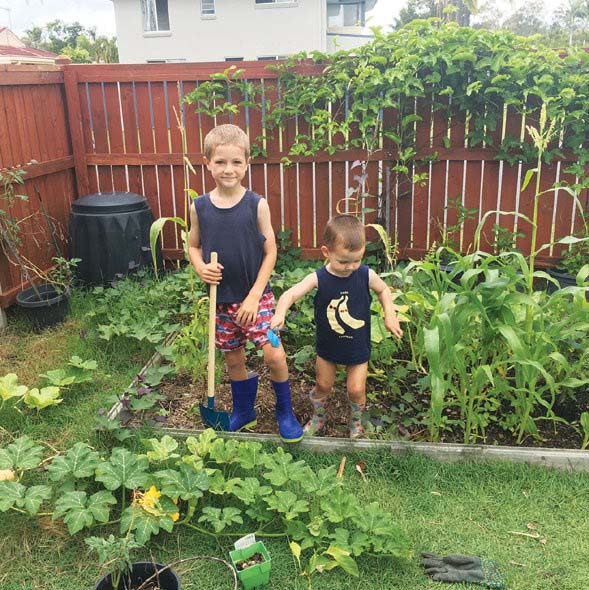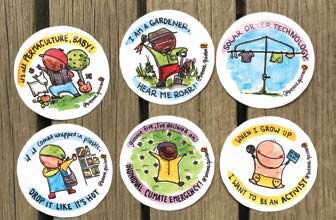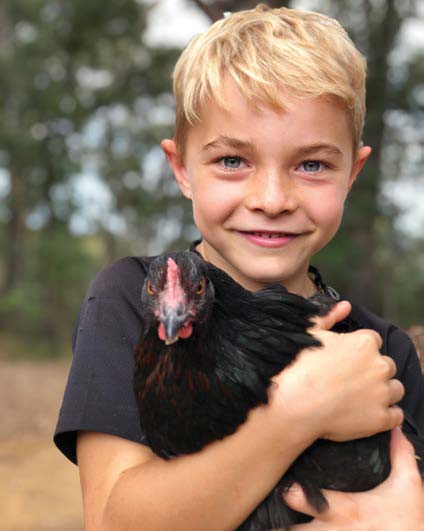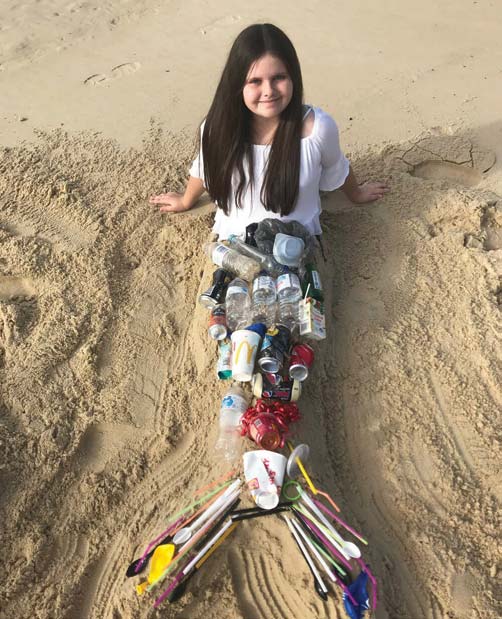Kids’ patch

Our kids’ patch winners for this issue are Harvey and Clancy Howe from Palm Beach in Queensland, you’ve won a packet of permaculture action cards by Brenna Quinlan and Charlie Mgee.
Next issue we’ve got the 2021 book Bee Detectives to give away. Written by Vanessa Ryan-Rendall and illustrated by Brenna Quinlan, it’s for any aspiring bee detective who wants to learn how to attract native bees to their backyard.
SHOW US YOUR GARDEN
Howard, Queensland
Name
Jarvis Pohlmann
How old are you?
I’m ten years old.
Where do you live?
I live on Terra Tribe Farm, it’s 12.5 acres of land on the Burrum River and near the rural town of Howard on the Fraser Coast in Queensland.



